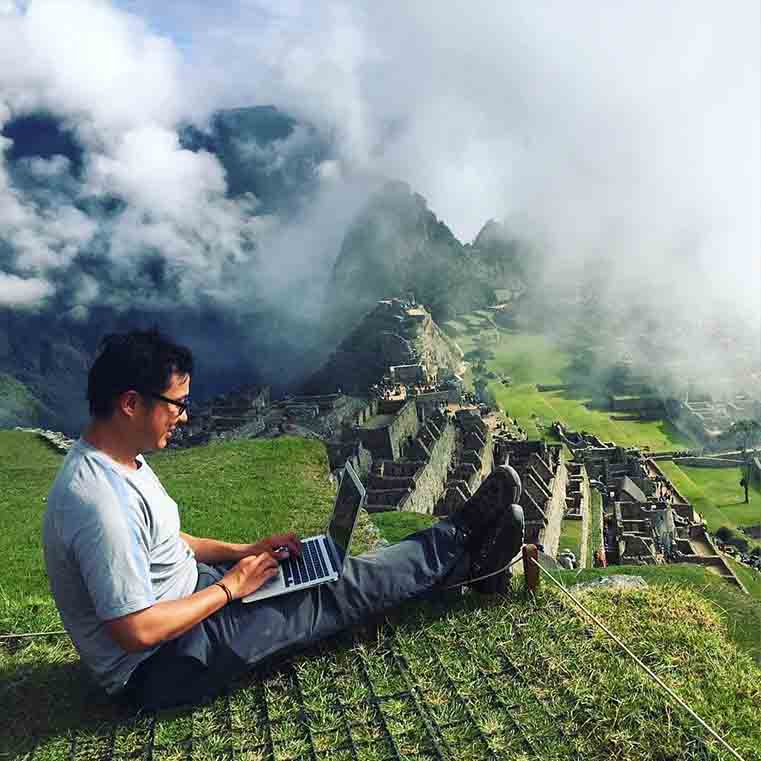The collapse of Remote Year has triggered a seismic shift in digital nomad communities worldwide, leading to heightened scrutiny of both existing platforms and the evolving dynamics of remote work. As participants experienced abrupt cancellations and lost investments, the disillusionment has been palpable.Many have begun to question the viability of committed group travel programs, realizing that reliance on a single service provider can create significant vulnerability in their nomadic lifestyles. The fallout has prompted reflections on community resilience, the importance of diversified travel arrangements, and the inherent risks of relying on third parties for seemingly supportive frameworks.
Moreover, the turbulence may serve as a catalyst for a more self-sufficient and resourceful nomad culture. With the rise of grassroots initiatives and localized networks,digital nomads are increasingly turning to peer-driven solutions for their travel needs,leading to innovations in resource sharing and collaborative living. Key trends emerging from this shift include:
- Increased Local Engagement: Nomads are more inclined to integrate into local communities rather than following a fixed program.
- Peer-to-Peer platforms: Emergence of alternative models that facilitate connections among nomads for co-living and co-working.
- Mental health Awareness: Growing discourse around the mental and emotional aspects of a transient lifestyle,encouraging deeper connections.
This transformation signals a critical moment in the evolution of digital nomadism, as communities rally to create sustainable ecosystems independent of collapsing corporate models says to Blank Space Project web.
Lessons Learned from the Collapse
The recent collapse of Remote Year, a program once celebrated for its innovative approach to remote work and travel, offers critical insights that resonate beyond just the travel industry. The failure serves as a stark reminder of the importance of adaptability in a rapidly changing habitat. Many organizations prioritize growth over sustainability, neglecting to establish robust operational frameworks that can withstand economic fluctuations. As seen in Remote Year’s case, even the most well-intentioned models can falter without a solid foundation. Key takeaways include:
- Sustainable growth vs.Rapid Expansion: Organizations must balance ambition with practical growth strategies.
- Customer Feedback Loop: Engaging with customers can reveal critical insights that drive improvements and innovation.
- Financial Resilience: Establishing a diversified revenue stream can buffer against unforeseen market changes.
Additionally, the Remote Year collapse highlights the necessity for cultural adaptability, especially in a post-pandemic world where work and travel dynamics have shifted dramatically. Companies that fail to recognize the evolving preferences and needs of their workforce risk alienating their clientele. In hindsight, a more flexible approach could have mitigated customer dissatisfaction and retention issues. Significant lessons include:
- Embrace Change: Versatility in policies and programs is essential for catering to diverse employee needs.
- Dialog is Key: Clear, transparent communication can foster trust and loyalty among participants.
- Innovative Problem-Solving: Organizations should cultivate a culture where creative solutions to emerging challenges are welcomed and explored.
 Future of Co-Working and Remote Work Spaces
Future of Co-Working and Remote Work Spaces
The recent collapse of Remote Year has sparked a significant conversation about the evolving landscape of co-working and remote workspaces. As companies and individuals re-evaluate work arrangements, a shift is apparent towards more hybrid models that combine the flexibility of remote work with the camaraderie of in-person collaboration. In this context, traditional office spaces are being reimagined to cater to the needs of a diverse workforce, leading to the emergence of innovative co-working solutions aimed at fostering community and productivity.Features that are now in high demand include:
- Adaptable work environments: Spaces that can be used for quiet work, brainstorming sessions, or team meetings.
- High-quality technology: Investment in tools that facilitate seamless virtual collaboration and communication.
- Wellness amenities: Areas designed for exercise, relaxation, and mental health support.
Moreover, as the concept of work-life balance gains traction, co-working spaces are increasingly focusing on the overall experience of their members. This involves creating vibrant ecosystems that incorporate not just desk space but also access to community events,workshops,and networking opportunities that encourage professional growth. Moreover, remote workspaces are becoming more geographically diverse, with companies looking beyond urban centers to tap into talent in suburban and rural areas. The implications of these changes underscore a more consumer-driven approach to workspace design, where flexibility, connectivity, and holistic well-being take precedence in shaping the future landscape of work.
 Recommendations for Sustainable Travel Programs
Recommendations for Sustainable Travel Programs
In light of recent events surrounding the collapse of prominent travel programs, it has become imperative for the travel industry to pivot towards more sustainable practices. Programs that prioritize local engagement, environmental stewardship, and economic resilience can create lasting benefits for both travelers and host communities. Tour operators and organizations should consider integrating the following initiatives into their offerings:
- Collaboration with Local Communities: Develop partnerships with local artisans, guides, and service providers to ensure that economic benefits are retained within the community.
- Eco-Friendly Accommodations: Promote stays in hotels and lodges that utilize sustainable practices, such as solar energy, waste reduction techniques, and sourcing food locally.
- education and Awareness: Include workshops or sessions on local culture and environmental challenges,enabling travelers to develop a deeper understanding of their impact.
Moreover, the importance of openness in sustainability claims cannot be overstated. Travelers are increasingly discerning, seeking authentic experiences that genuinely contribute to sustainability. Implementing a robust feedback mechanism will allow companies to continuously improve their practices based on traveler inputs. Essential measures to adopt include:
- Regular Impact Assessments: Perform evaluations to measure the environmental and social impact of travel programs, sharing results with participants to foster accountability.
- Promotion of Responsible Behavior: Encourage travelers to adopt sustainable habits, such as minimizing waste and respecting wildlife, to amplify their positive footprint.
- Investment in Local Projects: Allocate a percentage of profits to community-led initiatives, reinforcing commitment to the regions that travelers explore.